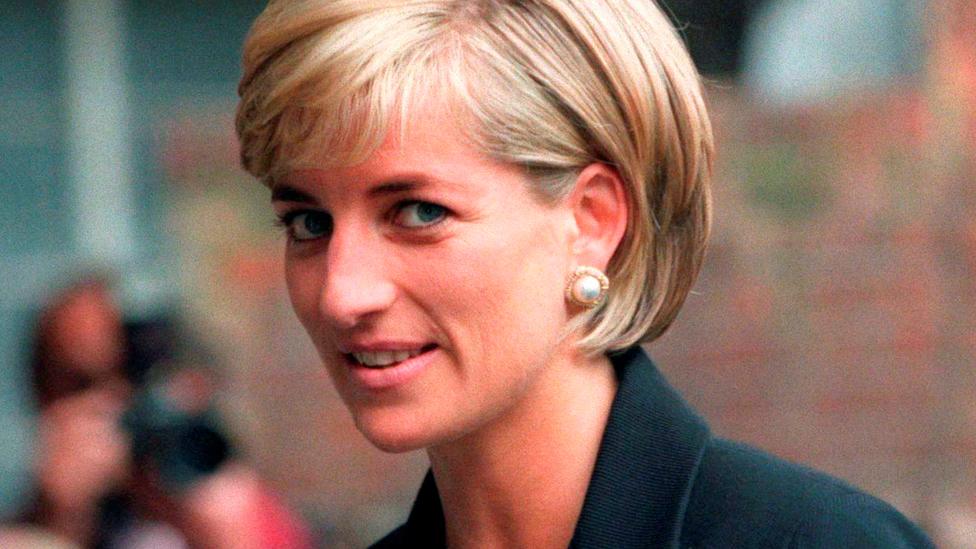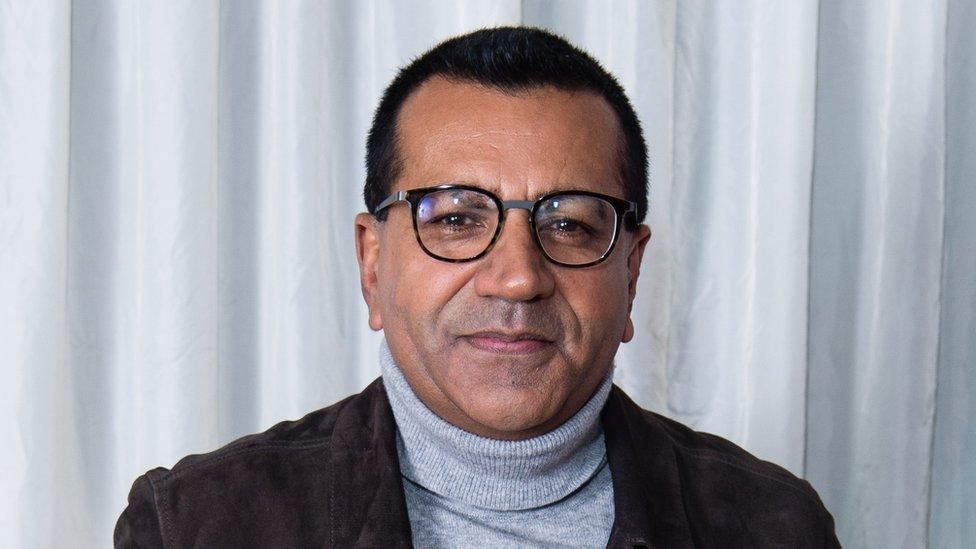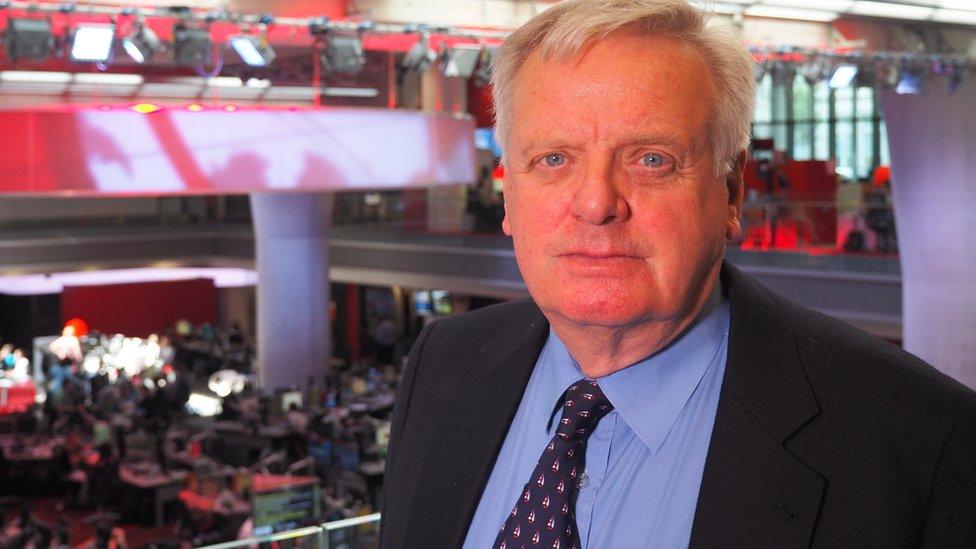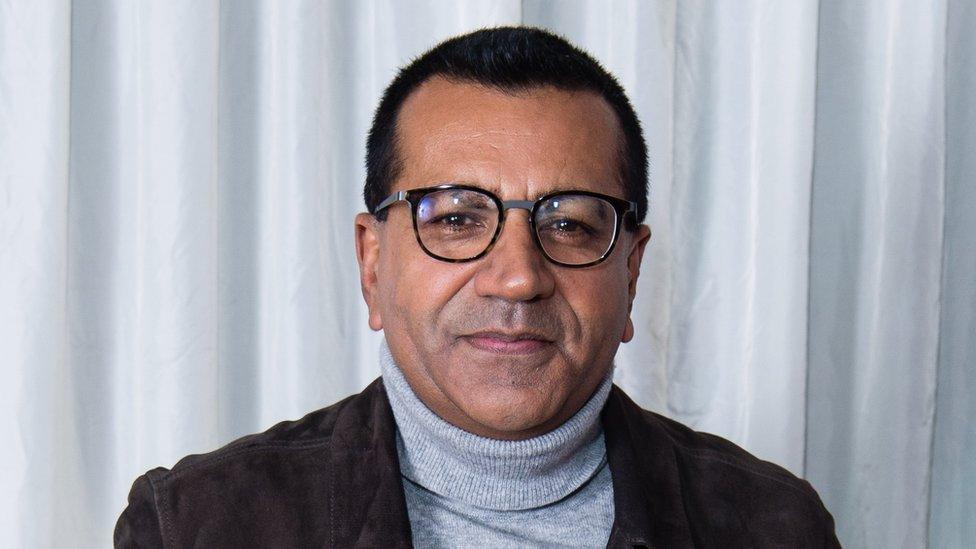Princess Diana interview: 'Dark cloud over BBC journalism' says Lord Grade
- Published

Martin Bashir's Panorama interview with Princess Diana was broadcast in 1995
Former BBC chairman Michael Grade has said allegations that Martin Bashir used forged bank statements to convince Princess Diana to do a 1995 interview were "a very, very serious matter".
The BBC has promised to launch an investigation into the claims made by Earl Spencer, Princess Diana's brother.
Earl Spencer says the former Panorama reporter made false and defamatory claims about senior royals.
Lord Grade said the BBC should now hold itself to account.
"There is a very dark cloud hanging over BBC journalism," Lord Grade told Radio 4's World at One programme on Monday.
"As a result of the questions raised by Earl Spencer, Channel Four, and the Daily Mail, this needs to be cleared up.
"There needs to be an immediate independent inquiry announced, and the results of that inquiry need to be published."
A documentary titled Diana: The Truth Behind the Interview aired on Channel 4 last month and the Daily Mail published Earl Spencer's claims last week.
'Taking this very seriously'
The BBC's director general, Tim Davie, said on Monday the corporation was "taking this very seriously and we want to get to the truth".
"We are in the process of commissioning a robust and independent investigation," added Mr Davie.
A BBC spokeswoman said Bashir, the corporation's current religion editor, was unwell and unavailable for comment.
"Martin Bashir is signed off work by his doctors - he is currently recovering from quadruple heart bypass surgery and has significant complications from having contracted Covid-19 earlier in the year," she said.
Lord Grade said Bashir's medical condition "is a secondary issue" that is "important for him and his family, obviously".
But he stressed that the public deserved a timeline of "who knew what when", ahead of the famous interview.
"Now there may well be very good answers and the BBC may well come out of this absolutely clean, but there are so many questions being raised.
"There's only one way to clear this up and that is with an independent inquiry to be published."
Almost 23 million people tuned in to watch the Panorama programme 25 years ago.
In it, the princess famously said "there were three of us in this marriage", referring to the Prince of Wales's relationship with Camilla Parker-Bowles.
At the time, Princess Diana was separated from Prince Charles but not yet divorced.

The BBC said Mr Bashir is currently recovering from heart surgery and complications from Covid-19
The BBC's royal correspondent, Jonny Dymond, said the notes Earl Spencer says he made with Bashir two months before the interview, reported by the Daily Mail, external, are "astonishing".
They appear to record Bashir "spinning lie after lie about members of the Royal Family, and its staff, in an attempt, Earl Spencer says, to win his trust and that of his sister, Diana" our correspondent said.
These claims, described by the Mail as "preposterous lies", include that Diana's private correspondence was being opened, her car tracked and phones tapped.
It was also claimed that her bodyguard was plotting against her and close friends were betraying her by leaking stories to the press. This week, Earl Spencer said he never would have introduced Bashir to his sister were it not for him seeing faked bank statements.
The faked statements wrongly purported to show that two senior courtiers were being paid by the security services for information on his sister, the Daily Mail said.
The BBC has apologised for the faked statements, but has insisted they played "no part in her decision to take part in the interview".

Lord Michael Grade was BBC chairman from 2004 to 2006
A documentary, which will air on ITV on Monday and Tuesday, features a graphic designer who says he was asked to create the fake bank statements. Matt Wiessler says he was made a scapegoat and wants an apology.
Mr Wiessler said: "I quite clearly felt that I was the one that was going to be the fall guy in this story.
"All I want is for the BBC in this instance to come forward and honestly make an apology. Because it's had a huge impact."
The Princess of Wales died on 31 August 1997, aged 36, in a car crash in a Paris underpass.

Follow us on Facebook, external, or on Twitter @BBCNewsEnts, external. If you have a story suggestion email entertainment.news@bbc.co.uk, external.
- Published7 November 2020

- Published3 November 2020

- Published22 October 2020
